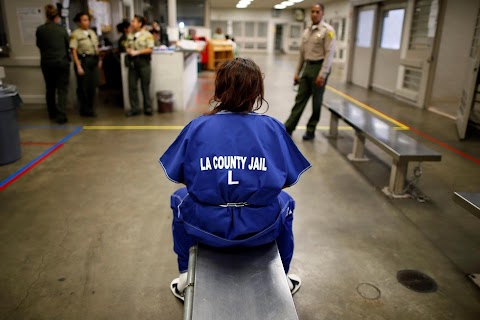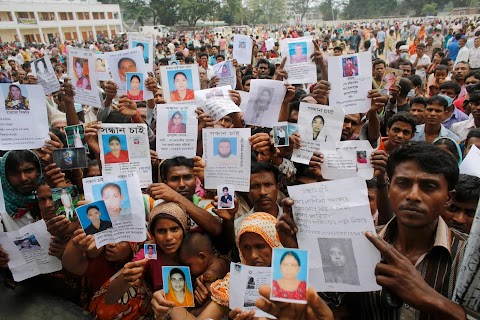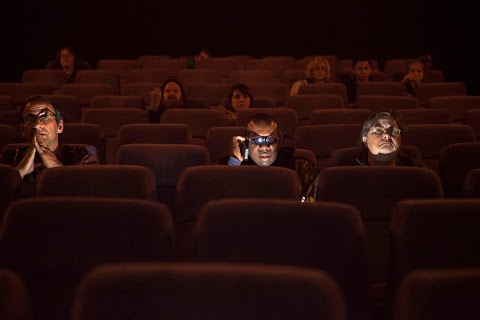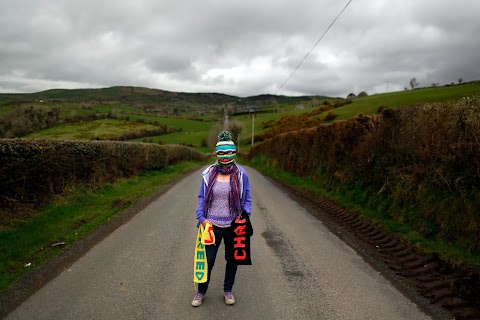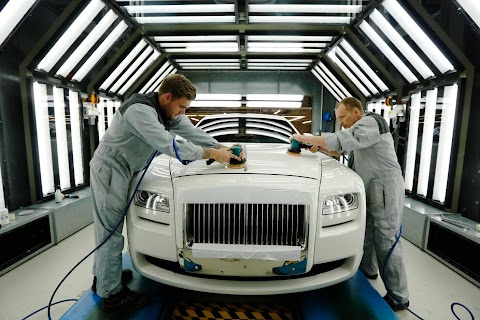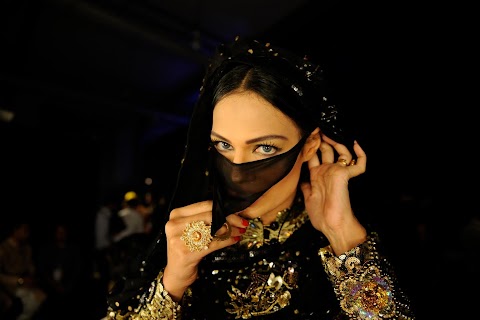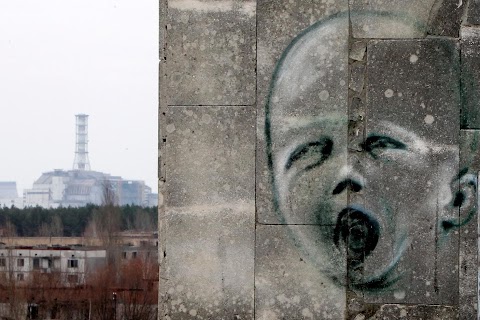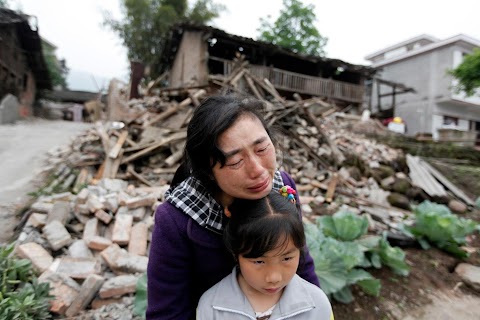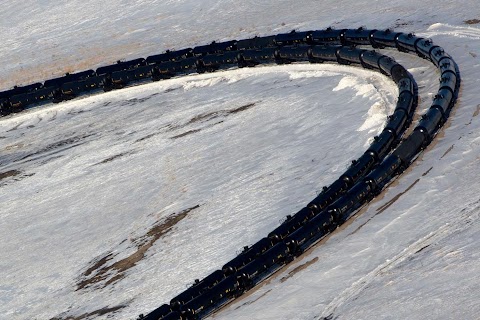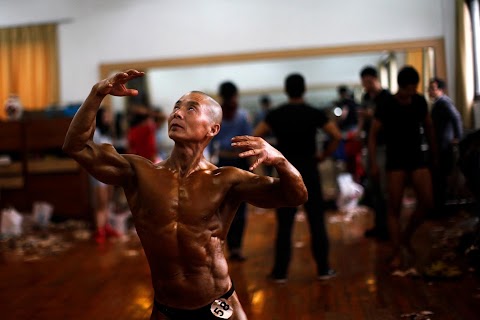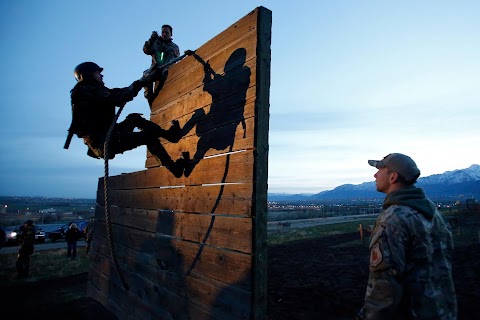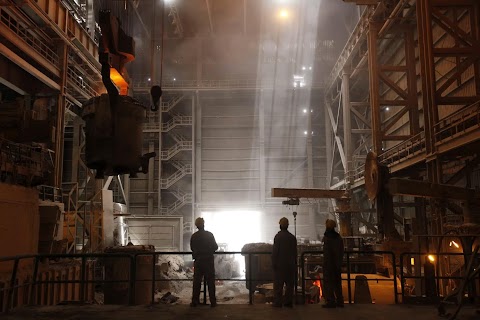
Inside modern Chechnya
Dancers strike dramatic poses as they have their pictures taken at a government-organised event marking Chechen Language Day in Chechnya’s capital Grozny.
Moscow has poured cash into rebuilding the mainly Muslim province, the former site of a bloody separatist insurgency. Now the naming of two Chechens as suspects in the Boston Marathon bombings has put it back on the world's front pages.


Story
Tsarnaev homeland Chechnya: rebuilt from war, ruled by fear
When it was last in the international spotlight, Chechnya was in ruins, its capital Grozny reduced to dust by the deadliest artillery and air onslaught in Europe since World War Two.
Today, when the naming of two Chechens as suspects in the Boston Marathon bombings has put it back on the world's front pages, Chechnya appears almost miraculously reborn.
The streets have been rebuilt. Walls riddled with bullet holes are long gone. New high-rise buildings soar into the sky. Spotless playgrounds are packed with children. A giant marble mosque glimmers in the night.
Yet, scratch the surface and the miracle is less impressive than it seems. Behind closed doors, people speak of a warped and oppressive place, run by a Kremlin-imposed leader through fear.
The heavily guarded skyscrapers of the newly built Grozny City complex are windswept and empty. At night, the streets are deserted.
Dzhokhar and Tamerlan Tsarnaev's ethnic homeland, a mainly Muslim province that saw centuries of war and repression, no longer threatens to secede from Russia. But it has become breeding ground for a form of militant Islam whose adherents have spread violence to other parts of Russia, and may have inspired the radicalisation of the Boston bombers.
"It may look like it's stable and peaceful but it's really not the case," said a human rights campaigner, who, like others daring to express any criticism of the Moscow-backed Chechen leader, Ramzan Kadyrov, asked that her name not be used.
There are still fragmented groups of rebel fighters in the mountains, the activist added. "And there are young people in the villages who go out and join them, who take food to the mountains."
SUSHI, IPHONES AND ISLAM
Moscow has poured billions of roubles into Chechnya to rebuild it. It boasts that there is no longer any trace of the separatist insurgency that humiliated the Russian army in battles in the 1990s.
On top of what was once the rubble of Grozny's central Minutka Square - where an armoured column of Russian forces was nearly wiped out in street fighting in January 1995 - there are now slick cafes where young men in leather jackets and women in headscarves eat sushi and tap on their iPhones.
Kadyrov, a 36-year-old former rebel, peers down from billboards and out from TV newscasts. A red neon slogan declares "Ramzan, thank you for Grozny!"
A stocky man with a neatly trimmed beard and intense grey eyes, he cultivates an image as a devout Muslim and family man, fond of posting snapshots on Internet photo service Instagram
Kadyrov and his authorities deny they are involved in abuse, murders or disappearances, but his critics have a long history of dying in unsolved murders or disappearing without a trace.
Human rights groups have linked Kadyrov to the murders of Russian opposition-minded journalist Anna Politkovskaya, Chechen exiles in Austria and Turkey, and rival Chechen clan chiefs shot dead in Moscow and Dubai, all cases in which he denies involvement.
Kadyrov's office said he was not available for interview.
His loyalty can be embarrassing even for the Kremlin. At the last elections, President Vladimir Putin and his ruling United Russia party won more than 99 percent of Chechnya's vote, with Soviet-style turnout over 99 percent.
Perhaps in an attempt to limit the influence of Islamist rebels by co-opting religion, Kadyrov has banned alcohol and gambling, and promoted polygamy and headscarves for women. A few years ago, his supporters were seen firing paintball guns at women whose clothes were deemed insufficiently modest.
Yet Kadyrov's promotion of Islam has not dimmed the appeal of the radical version espoused by fighters led by Doku Umarov, a Chechen former pro-independence guerrilla commander who leads an Islamist revolt focused mainly on neighbouring Dagestan.
"When they tell us that only this official form of Islam is allowed, obviously everyone is going to question it," said the rights campaigner. "People don't like to be lectured on how to be faithful."
DEVOTION AND RESENTMENT
As in Soviet times, it is impossible to say what Chechens truly think of their leader. When questioned in public, residents reply with stock phrases of devotion.
"I don't know what would have happened to us without our leader," said Fatima Magomedova, 44, a heavily veiled flower shop worker. "We are free now."
Many are no doubt sincere in their admiration for Kadyrov, who has brought peace and relative prosperity after a decade of war killed tens of thousands of people, mainly civilians.
"I don't think many people want to leave. In fact, a lot of Chechens say they want to come back. Those who are leaving are those who are after an easy life," said Khamza Khirakhmatov, a deputy to Chechnya's official spiritual leader.
But outside the glitzy city centre lies an impoverished land where joblessness is close to 80 percent in some regions. Many flock to Grozny in search of work, but complain that jobs are reserved for those in Kadyrov's clan.
Some dream of leaving.
Rukiyat Arsayeva went to Grozny to apply for a passport in the hope of travelling to Europe. She said she was seeking medical help for her two daughters.
One, now 14, was a toddler when she was wounded in the abdomen by a Russian air strike. The other, now 20, was made deaf as a child by a missile blast.
Their mother said she feared the Boston bombings would make it harder for Chechens to get visas to escape to the West.
"Chechens are now going to be seen as bad people. We are not terrorists. After what happened I don't know what kind of treatment to expect there," she said nervously, clutching her paperwork on a dusty street outside the passport office.
"What happened in Boston is very bad. I am a small person. All I want is to help my children."


























